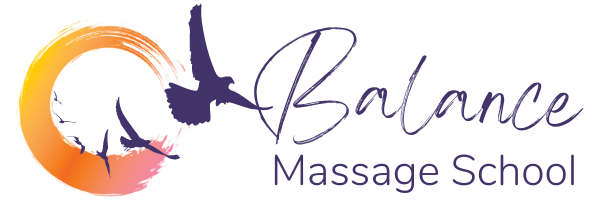Thoughts on Self-Awareness & Growth
I was sitting in our classroom the other evening, finishing up some paperwork and thinking about the day’s activities and discussions, and I was feeling particularly lucky not only to be working with these amazing and intuitive students, but also for the joy I am experiencing this year teaching them about this beautiful and sacred profession.
And as I thought about the day we had just spent together, one line from a podcast we had listened to kept drifting back into my mind: “You are only as effective as you are self-aware.”
That’s a pretty powerful statement, and the more I thought about it, the more I realized how true and important and central to the study and practice of massage therapy self-awareness really is.
People come to us for such a wide variety of reasons. Some come for relief from physical pain, some for emotional or spiritual comfort, and still others for what I not-so-lightly call relaxation therapy – to turn off the noise and distractions of daily life in order to reconnect with their inner selves and stimulate the parasympathetic nervous system (rest and digest). In the quiet and safety of the massage studio, I’ve seen true and lasting healing occur on so many levels once a client has been “set free” to reflect on the circumstances (past and present), as well as the drivers and impulses that impact their choices and decisions.
But this reflection, this healing, this growing self-knowledge, doesn’t happen by accident. It happens when a true and powerful bond of trust is formed between the massage therapist and her client. And for that to happen, the massage therapist has to be even more self-aware: of her boundaries, triggers, intentions, stressors, and motivations.
To that end, a fairly significant part of our curriculum at BMSVT is geared to helping our students learn more about themselves….who they really are, what their unique gifts are, how their life’s journey (so far) has impacted how they relate to others and to the world, why they make the decisions they do… Of course credentials and education and massage technique is of the utmost importance, but unless and until we can understand our own hearts and souls, we will not be able to form that bond of trust – through the beautiful and profound power of touch – with the people who come to us for healing.
The therapist-client relationship is, inherently, an extremely intimate one. A person has made the decision to let down their guard, and lay, vulnerable, on the therapist’s table. For many first-time (and even repeat) clients, this is a huge and often intimidating step. They have made the decision to let another person see and touch their body. And what happens at this moment is both humbling and beautiful. For the self-aware massage therapist, it’s a moment of compassion, deep acceptance, and a desire to bring healing, peace, joy, and restoration to another human being. For the client, it’s a moment of cautious release followed by a deep, almost luxurious sense of safety, vulnerability, and love.
It is not uncommon in this moment, and in the sessions that follow, for both the therapist and client to feel a powerful sense of connectedness – that bond of trust – that in some ways is unique to only them. And because this is such an emotional connection it is more important than ever for the therapist to be aware of where her feelings and motivations and compassion are coming from; and to be able to communicate the boundaries of this inherently intimate relationship within the expression of that love, compassion and unconditional positive regard. For this to happen, the massage therapist has to know herself well, and maintain control over her own feelings and emotions.
Part of this self-awareness will come from a growing understanding of the lens through which she sees the world and others, and part will come from a growing understanding of her inner self. Has she entered massage therapy to provide inner healing to others because on some level, she needs healing herself? (That’s fine, by the way – she just needs to recognize it). Is she drawn to massage therapy out of compassion or some other motivation? Does her desire to make others’ lives happier come from a spirit of generosity or need? The self-aware massage therapist will, over time, know the answers to these questions, and they will inform the way she interacts with her clients as she builds unique and individual bonds of trust – all of them different – with each of them.
When we become aware of our own inner needs, motivations, stressors, and strengths, we can begin building confidence and trust in our selves as massage therapists, able to do the work we feel guided to do, in the areas and places we feel guided to work. We do not pretend to be perfect, but instead we become authentic, intuitive, mindful, and compassionate practitioners who are grounded in our desire to bring healing and release to others, while we grow more whole in ourselves.
